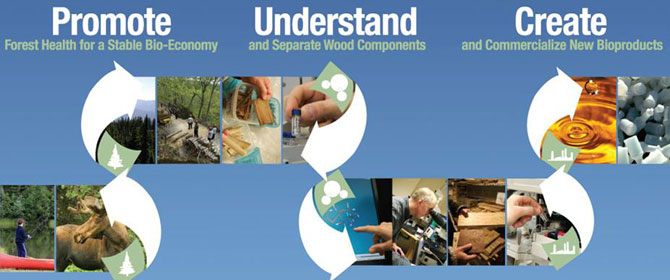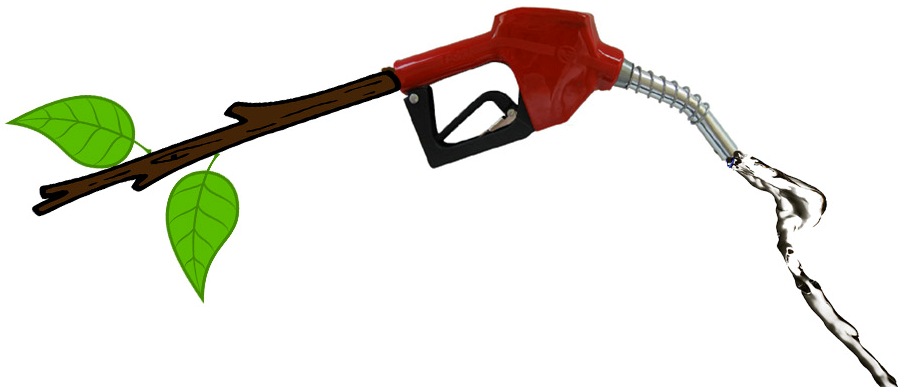College Daze For Old Town Rotary
Or how about being able to hold a chunk of ‘stuff’ that is 97% water on the blade of a knife? A ‘chunk of water’.…that’s just plain crazy right? Not so crazy and you don’t actually have to go very far for your imagination to run head first into reality. Right here in Old Town, Maine is a hidden jewel of a place where forest bio-products that would otherwise be of no, or very little value, have been converted into some amazing things with astounding economic potential, among them: a creamy white blob of 97% water with some magical little nanofiber thingys (my words not theirs) mixed in that looks a lot like a spoon full of mayonnaise. But when added to other things (like plastics) it makes them stronger and better, and when sprayed on lightly it can lengthen the shelf life of fresh fruits and vegetables. Oh yeah….and they also make jet fuel out of the stuff the logging companies would usually throw away!!!
This past week OTR went to the UMaine Forest Bioproducts Research Institute next to the Old Town Mill for a tour and everyone was blown away. Who knew we had such an awesome rockin’ place right here under our noses. The folks at FBRI are on the very cutting edge of research finding ways to use one of our very most valuable Maine resources in amazing new ways. It’s a little complicated but in a sort of simplified version…….they do on a large reality based scale what the other UMaine scientists have done in beakers and test tubes in the lab. They do this to test the feasibility of the processes in an economical way to survive in a profit driven market….and they are there for private entities to come in and run their tests to develop the products they are creating for commercial use.
In their words:
The ultimate goal is to build research infrastructure that creates a forest-based biorefinery in Maine, using trees instead of oil to make fuel…but not just fuel. UMaine wants to augment the pulp and paper and building products industries with new revenue streams of high-profit margin chemicals, plastics and nanotechnology products as well as new sources of energy. Best of all, these bioproducts would leave a smaller, lighter ecological footprint.
“Advances in science, coupled with better understanding of the ecosystem, the biology of tree growth and the chemistry of breaking wood down, allow us to approach forest biorefining more efficiently than we have in the past,” says Stephen Shaler, a UMaine professor of wood sciences and technology. “Almost 
anything that is now made from petroleum can now also be made from wood.”

anything that is now made from petroleum can now also be made from wood.”
The University of Maine has marshaled a broad array of campus researchers, scientists and partnerships to create energy solutions and fossil fuel replacement products with science and technology that is grounded in responsible forest and ecosystem management.
Director Hemant Pendse, assisted by several colleagues, spoke to a rapt audience as we all listened intently with our eyes as big as saucers and our jaws on the floor. It was clear everyone was impressed and awed with this Rotary trip back to school. Thanks to Pat for arranging an ultra cool road trip and for hooking us up with box dinners to eat on site as well. There is a photo album on the website home page and in the newsletter if you want to see a few pictures. For more information about the UMaine Forest Bioproducts Research Institute just click on their logo above on the left!

